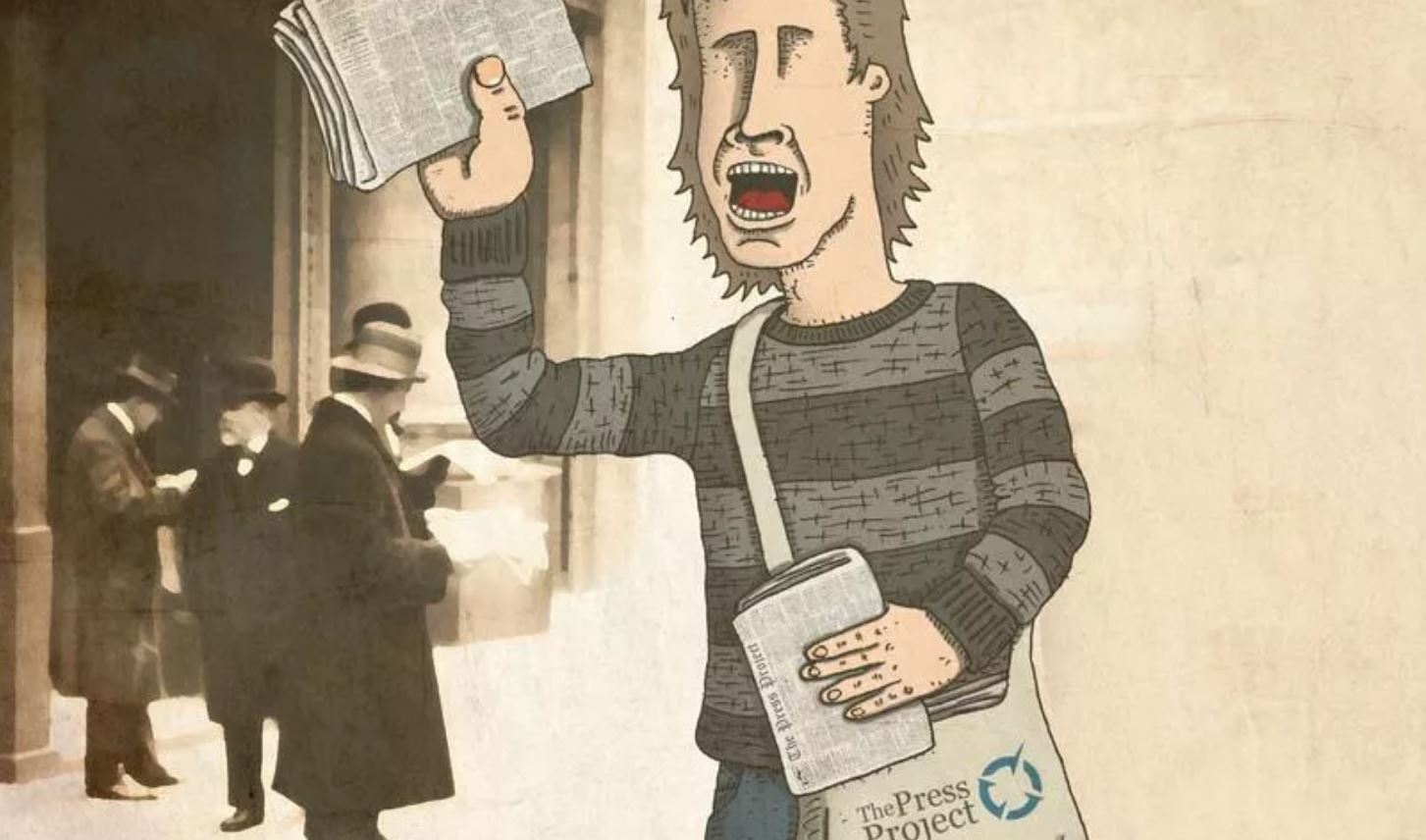
Greece right now is undergoing mild and gradual regime change. Here at ThePressProject we always try to express ourselves with the greatest possible prudence and moderation, avoiding rhetorical fireworks. At this moment, though, it is impossible not to note the current unprecedented combination of police brutality and total media control.
The media has come under complete control of the government, which under the guise of the pandemic has gifted them with tens of millions of euros in the form of emergency grants and tax exemptions.
The last few days in Greece have witnessed an immense outbreak of police violence with scenes of unimaginable police brutality, which the government completely covers up with outrageous excuses. Police have attacked families in various neighborhoods of Athens, but the media are primarily concerned with the injury of a police officer, which occasioned a speech by the prime minister.
The most shocking recent occurrence was an incident of police violence in Nea Smyrni (a southern suburb of Athens). All mainstream media propagated police leaks that, prior to the police beating of a citizen in Nea Smyrni, the police had been surrounded and attacked by thirty (according to police) or sixty (according to the police’s lawyer) anarchists.
This initial narrative fell away under the pressure of videos that were subsequently released, and in particular one video with 850,000 views on ThePressProject.
The Greek newspaper Kathimerini covered the story with the headline “30 people attack police,” but then gradually began to change their account under pressure from social media users who posted comments below the article.
What is more, two weeks ago the company that manages the content control for Facebook in Greece set restrictions on the personal profiles of university teachers, lawyers and journalists, and even journalistic on news media organizations, including the ThePressProject. The Greek office of Amnesty International has issued a statement on the issue (in which ThePressProject is mentioned by name), and the official Opposition has now submitted a query about the matter to the Greek parliament.
In the recent cases of the Lignadis scandal and the prime minister’s violation of pandemic restrictions, we have already witnessed the mainstream Greek media acting completely in line with the government’s efforts to conceal what is really going on.
We offer this brief review of highly disturbing recent events in order to impress upon you just how tense the situation is right now in Greece. And that is why it is of the utmost importance that the English-speaking public around the world be informed by independent, non-systemic sources.
We ask that you support ThePressProject’s effort to run a parallel English-language news feed at this time.
You can provide financial support to ThePressProject at this address by noting the number of the bank transaction (so that you can receive a receipt) and the word “English.”
We ask you that you contribute to this campaign and share our call for support, so that we can strengthen the English edition of ThePressProject in order to ensure that the international public has access to independent and reliable information from Greece.
You can read more about the importance of ThePressProject’s English edition here.
More about ThePressProject
ThePressProject is a member of a number of international journalism networks: The Intercept, Project Syndicate, openDemocracy, PoliticalCritique.org, The European Center for Press and Media Freedom, International Press Institute, and Osservatorio Balcani e Caucaso. Contributors to ThePressProject have included Julian Assange, Mark Blyth, Srećko Horvat, Paul Mason, and Yanis Varoufakis.
The international significance of ThePressProject has been recognized by the Guardian, the New York Times, Zeit, and Liberation, among others.
“Outlets like … The Press Project are trying investigative journalism in a country that does not always embrace the undertaking.”
–The New York Times, Greeks question media, and new voices pipe up
“[The] Press Project’s journalists have found plenty. They’ve decoded and indexed every single official decision and details of every public works contract and tenders — and in the process uncovered numerous questionable transactions.”
–NPR, Greece’s economic crisis reveals fault lines in the media
‘“Follow the money,’ says the alternative news portal The Press Project, which was founded in Athens in 2010 and has earned a reputation as an independent medium. ‘Society’s mistrust has a very tangible component: the oligarchs pay for news and determine its content.’”
–Zeit, Medien in Griechenland: Dann schreiben sie eben selbst
“As the government tried to cut the power to ERT’s antennas, Mr. Efimeros and his team tapped into satellite signals broadcast surreptitiously by ERT employees and posted them to the group’s Web site and on social media.”
–The New York Times, News finds new ways to flow as Greek state broadcaster is shut